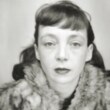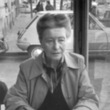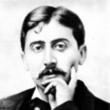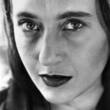Happening
Description
More Details
9781609802264
Similar Titles From NoveList
Similar Authors From NoveList
Published Reviews
Booklist Review
French writer Ernaux focuses on the essentials, events that elicit fear and shame, as though literature is a razor slicing away the psychic scar tissue that conceals wounding truths. She has written frankly and cathartically about illness, her parents's working-class lives, and her own debilitating love affair. Now, in her fiercest and most heroic resurrection of the past, she describes her accidental pregnancy at age 23 in 1963 and the trauma of her life-threatening illegal abortion. Not in love with her uncaring partner and desperate to stay in graduate school, Ernaux was reasonably sure that she was doing the right thing but was utterly unprepared for the psychological and physical brutality it entailed. By threading her crystalline narrative with diary entries from the time and reflections on the emotions writing this tensile narrative aroused, Ernaux conveys with dignity and revelation how her life-changing confrontation with horror and truth led to her conviction that "any experience, whatever its nature, has the inalienable right to be chronicled." Donna Seaman
Publisher's Weekly Review
French novelist and memoirist Ernaux (Shame; A Frozen Woman; etc.) was 23 in 1963 when she discovered she needed an abortion. After an unsuccessful attempt with a knitting needle, she tracked down a backstreet abortionist in Paris. Her three-month-old embryo was finally expelled some days later in the bathroom of her student dorm, the bloody remains flushed down the toilet. Ernaux tells the story of those awful months very simply, with only occasional asides of hindsight. A few well-chosen details "If I Had a Hammer" on the jukebox, the Singing Nun's "Dominique," the sexually predatory Movement men anchor her story in the early '60s, although most of the emotional texture (the body denial, panic, that feeling that "my ass had caught up with me") is disturbingly timeless. Ernaux's preoccupation with "power" over her "text" makes her postmodernism plain, although there's also a wonderfully old-fashioned Frenchness in her world view. Stretched out on the abortionist's table, she sees the scene before her like a still life: Formica table with enamel basis, probe, hairbrush. Ernaux needed to write this history: the making of a written record is the only reason she can find for this otherwise accidental pregnancy and its bloody aftermath. Indeed, readers who lived through the Bad Old Days before abortion was legalized will meet a lot of old demons here, even if a younger generation may find it bafflingly understated. Though not destined for a wide readership, it is an important, resonant work. (Oct.) (c) Copyright PWxyz, LLC. All rights reserved
Library Journal Review
Though not well known in this country, Ernaux is celebrated and widely taught in her native France. In the United States, two of her works A Woman's Story and A Man's Place were both chosen as New York Times Notable Books, and Shame made Publishers Weekly's best books list for 1998. Ernaux's writing, here beautifully translated by Leslie, and her books themselves are slim, clean, and unadorned, yet they manage to capture felt experience with immediacy and impact. This new volume recalls a time in 1963 when Ernaux, 23 and single, learned that she was pregnant and set out to obtain an abortion, illegal in France at the time. She tried a knitting needle on herself, finally found an abortionist, then nearly died in an emergency room. This material is rife with opportunities for the writer to manipulate the reader's emotions, a temptation Ernaux avoids scrupulously. The result is deeply affecting. Recommended for literary, French, and/or women's studies collections. Mary Paumier Jones, Westminster P.L., CO (c) Copyright 2010. Library Journals LLC, a wholly owned subsidiary of Media Source, Inc. No redistribution permitted.
Booklist Reviews
French writer Ernaux focuses on the essentials, events that elicit fear and shame, as though literature is a razor slicing away the psychic scar tissue that conceals wounding truths. She has written frankly and cathartically about illness, her parents' working-class lives, and her own debilitating love affair. Now, in her fiercest and most heroic resurrection of the past, she describes her accidental pregnancy at age 23 in 1963 and the trauma of her life-threatening illegal abortion. Not in love with her uncaring partner and desperate to stay in graduate school, Ernaux was reasonably sure that she was doing the right thing but was utterly unprepared for the psychological and physical brutality it entailed. By threading her crystalline narrative with diary entries from the time and reflections on the emotions writing this tensile narrative aroused, Ernaux conveys with dignity and revelation how her life-changing confrontation with horror and truth led to her conviction that "any experience, whatever its nature, has the inalienable right to be chronicled." ((Reviewed September 15, 2001)) Copyright 2001 Booklist Reviews
Library Journal Reviews
Though not well known in this country, Ernaux is celebrated and widely taught in her native France. In the United States, two of her works A Woman's Story and A Man's Place were both chosen as New York Times Notable Books, and Shame made Publishers Weekly's best books list for 1998. Ernaux's writing, here beautifully translated by Leslie, and her books themselves are slim, clean, and unadorned, yet they manage to capture felt experience with immediacy and impact. This new volume recalls a time in 1963 when Ernaux, 23 and single, learned that she was pregnant and set out to obtain an abortion, illegal in France at the time. She tried a knitting needle on herself, finally found an abortionist, then nearly died in an emergency room. This material is rife with opportunities for the writer to manipulate the reader's emotions, a temptation Ernaux avoids scrupulously. The result is deeply affecting. Recommended for literary, French, and/or women's studies collections. Mary Paumier Jones, Westminster P.L., CO Copyright 2001 Cahners Business Information.
Publishers Weekly Reviews
French novelist and memoirist Ernaux (Shame; A Frozen Woman; etc.) was 23 in 1963 when she discovered she needed an abortion. After an unsuccessful attempt with a knitting needle, she tracked down a backstreet abortionist in Paris. Her three-month-old embryo was finally expelled some days later in the bathroom of her student dorm, the bloody remains flushed down the toilet. Ernaux tells the story of those awful months very simply, with only occasional asides of hindsight. A few well-chosen details "If I Had a Hammer" on the jukebox, the Singing Nun's "Dominique," the sexually predatory Movement men anchor her story in the early '60s, although most of the emotional texture (the body denial, panic, that feeling that "my ass had caught up with me") is disturbingly timeless. Ernaux's preoccupation with "power" over her "text" makes her postmodernism plain, although there's also a wonderfully old-fashioned Frenchness in her world view. Stretched out on the abortionist's table, she sees the scene before her like a still life: Formica table with enamel basis, probe, hairbrush. Ernaux needed to write this history: the making of a written record is the only reason she can find for this otherwise accidental pregnancy and its bloody aftermath. Indeed, readers who lived through the Bad Old Days before abortion was legalized will meet a lot of old demons here, even if a younger generation may find it bafflingly understated. Though not destined for a wide readership, it is an important, resonant work. (Oct.) Copyright 2001 Cahners Business Information.
































